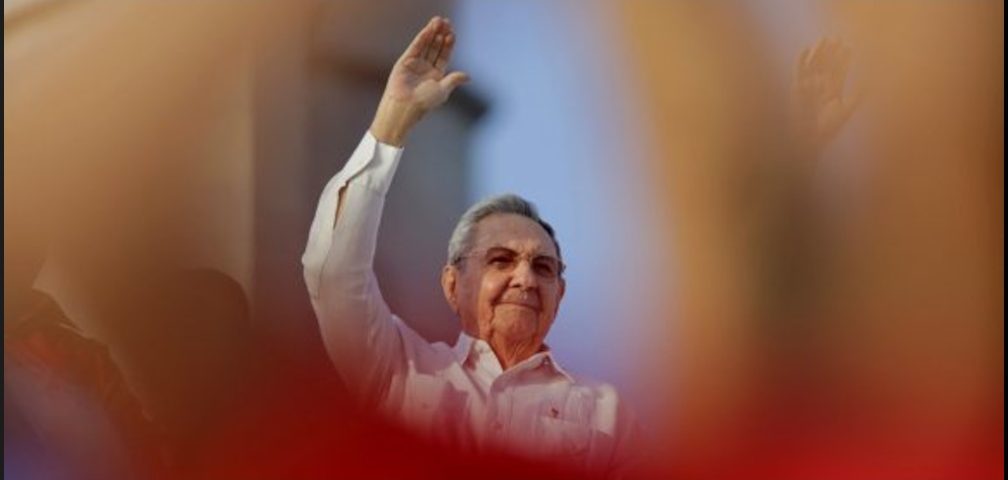by Rosa Miriam Elizalde, published on Resumen English, April 29, 2021
I remember the epitaphs written in advance 30 years ago. As the USSR crumbled, the wise men of the tribe predicted that Cuba would not resist without Moscow’s gold nor would it be able to withstand the entropy of “real socialism” with the addition of U.S. pressures. “With the shovel held high, the gravediggers wait,” wrote Uruguayan Eduardo Galeano in 1992.
They assured that, as every revolution usually begins and ends with cannon shots, the best thing that could happen to the Cuban revolution was for Fidel Castro to surrender in advance in order to save deaths. The Spanish newspaper El País urged the La Moncloa Palace to help the hypothetical government in Havana “to integrate into the Western community, to which Cuba belongs by history and by its own right; thus trying to mitigate the consequences of a turbulent transition and avoiding the violent tones of hatred and revenge that could arise”.
Insult aside -that of our renouncing to be western-, it has taken three decades for what some call the transition to take place, without the long awaited outcome. The so-called “historic generation”, that of the bearded men of the Sierra Maestra, simply left a few days ago the political posts they held, with no other consequences than the long applause given to them by the delegates and guests at the Eighth Congress of the Communist Party of Cuba, as a gesture of gratitude.
“Nothing obliges me to this decision, but I fervently believe in the strength and value of example and in the understanding of my compatriots and let nobody doubt it, that as long as I live I will be ready, with my foot in the stirrup, to defend the Homeland, the Revolution and Socialism”,
said Raúl Castro on April 16, when he announced that he was concluding his mandate as First Secretary of the party organization.
No violence, no hatred, no revenge. As far as Cuba is concerned, history has passed over the doomsayers of the tropical Berlin Wall. Raúl Castro bids farewell speaking not only of socialism, but also of the need to reinvent it and to be willing to apply corrections and experiments. President Miguel Díaz-Canel, who succeeds him in office, adds that it is necessary to connect with society and strengthen a democracy with the socialist surname,
“linked to justice and social equity, to the full exercise of human rights, to the effective representation and participation of society in the ongoing economic and social processes…. All this in an environment increasingly free from the burdens of bureaucratism, excessive centralism and inefficiency”.
It is definitely a question of building a new edifice on the foundations of an exemplary historical commitment, even if those who have spent their lives predicting the failure of the Cuban Revolution do not want to acknowledge it. In baptizing it, Fidel Castro described it as socialist, democratic, of the humble, with the humble and for the humble. This was not a rhetorical phrase. He said it in the street, before a crowd of people armed and determined to fight an invasion by the U.S. government and its mercenaries, on April 16, 1961. As the Spanish writer Manuel Vázquez Montalbán recognized, the worst thing for Cuba has not been to be alone, the worst thing is to be surrounded, although with the clairvoyance of betting on a socialism without the political and economic malformations of intramural Europe.
By the way, a great Marxist theoretician, Francisco Fernández Buey, described as “hypocritical politicians” those who prevented the construction of socialism in the East and then lamented the fact that it ended up being a monstrosity. And he adds,
“In such a context Castro’s clear discourse has for me the value of moral coherence…. The only way to know if Cuba could have become socialist in the original sense of the word, or if it can still become so, is to think of the hypothesis that he would have been allowed to do what the majority of the people there wanted when he made the revolution. But that we know they were not left to do, nor are they left to do.”
And in that came the “post-Castro” era without the announced cataclysms. The renewal has been taking place for years before the eyes of the whole world, with patience and tactical astuteness that have helped to unleash the qualities and capabilities of the common people. It is not only that the guerrillas are no longer nominally in the Party that has led national politics, but also that the generation that carries the destinies of the country was born after 1959 and is also expressed in feminine representation. The average age of its leaders is now 42.5 years old. Of those in positions of responsibility, 54.2% are women and 47.7% are blacks and mulattos. There are 75 first secretaries of municipal and district committees (42%). The whole structure of political and governmental power has changed, but not the course.
The real struggle in Cuba is not for change, but to give meaning to that word and to continue surfing in a continuous emergency situation. Will the gravediggers get tired of raising their shovel?
Source: Cubadebate, translation Resumen Latinoamericano – English

Fidel also banned all news and publications from the USSR from entering Cuba a few years after Gorbachev took power.
He didn’t want anyone on the island to get any ideas. That’s part of the explanation.